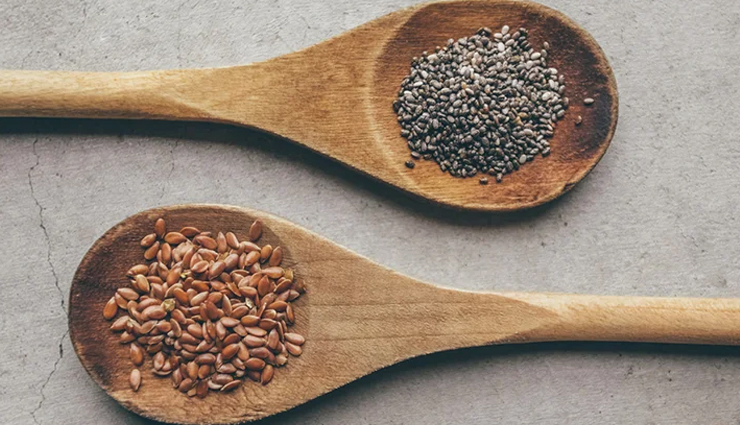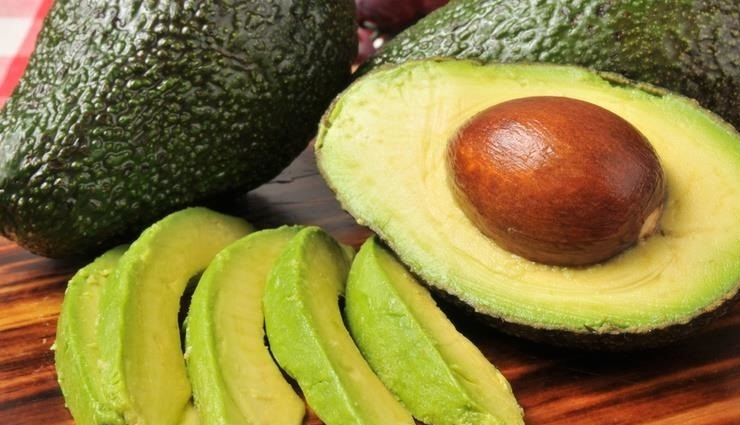- Home›
- Healthy Living›
- World Breastfeeding Week 2023- Diet Plan Lactating Mothers Should Follow
World Breastfeeding Week 2023- Diet Plan Lactating Mothers Should Follow
By: Priyanka Maheshwari Fri, 04 Aug 2023 6:48:00

Lactating mothers are women who are producing and secreting milk from their mammary glands to feed their newborn infants. This process is known as lactation, and it typically occurs after childbirth due to hormonal changes that stimulate the mammary glands to produce milk. Lactation is a natural physiological process that provides essential nutrients and antibodies to support the infant's growth and development.
Here are some key points about lactating mothers:
* Hormonal Regulation: The hormones prolactin and oxytocin play crucial roles in lactation. Prolactin stimulates milk production, while oxytocin triggers the let-down reflex, which releases milk from the breast into the infant's mouth.
* Colostrum: In the first few days after childbirth, mothers produce a thick, yellowish fluid called colostrum. Colostrum is rich in antibodies and nutrients, providing the newborn with immunity and essential sustenance.
* Milk Composition: Breast milk is a dynamic fluid that changes in composition over time to meet the infant's evolving nutritional needs. It contains a balanced mix of proteins, carbohydrates, fats, vitamins, minerals, and antibodies.
* Benefits of Breastfeeding: Breast milk offers numerous benefits to both the mother and the baby. For the baby, it provides optimal nutrition, supports the immune system, and is easily digestible. Breastfeeding is also linked to a reduced risk of various health conditions, such as allergies, obesity, and respiratory infections. For the mother, breastfeeding can help with postpartum weight loss, reduce the risk of certain cancers, and promote a strong emotional bond with the baby.
* Breast Pumping: Some mothers use breast pumps to express milk, allowing them to store and feed breast milk to their babies at a later time. This is particularly useful for working mothers or those who need to be separated from their infants for various reasons.
* Lactation Challenges: While breastfeeding is natural, it can come with challenges. Some mothers may experience issues such as low milk supply, engorgement, nipple pain, or difficulty latching. Seeking guidance from lactation consultants, healthcare providers, or support groups can be helpful in overcoming these challenges.
* Nutrition and Hydration: Lactating mothers need to maintain a balanced and nutritious diet to support milk production. Staying hydrated is also crucial, as producing milk requires additional fluids.
* Weaning: The process of transitioning from breastfeeding to other forms of nutrition is called weaning. It can occur gradually as solid foods are introduced into the baby's diet. Weaning can take place anywhere from several months to a few years after birth, depending on the preferences of the mother and the baby.
Remember that every mother's breastfeeding journey is unique, and it's important to make choices that are best for both the mother and the baby's well-being. Consulting with healthcare professionals and seeking support from lactation experts or breastfeeding support groups can provide valuable guidance and information.

Importance Of Diet For Breastfeeding Mothers
As a breastfeeding mother, your diet plays a vital role in nourishing both you and your baby. The nutrients you consume directly impact the quality and quantity of breast milk you produce, which in turn influences your baby's growth, development, and overall health. Proper nutrition during this phase is crucial, and here's why:
Optimal Nutrient Transfer: Breast milk is a baby's primary source of nutrition. A well-balanced diet ensures that essential nutrients like vitamins, minerals, protein, and healthy fats are available in sufficient quantities for your baby's growth and development.
Quality Breast Milk: A nutrient-rich diet contributes to the quality of your breast milk. Nutrients like omega-3 fatty acids, DHA, and antioxidants support your baby's brain development and immune system, helping them thrive in their early stages.
Maintaining Your Health: Breastfeeding can be physically demanding. A proper diet helps you maintain your own health, prevent nutrient deficiencies, and aids in postpartum recovery.
Energy and Hydration: Lactating mothers need extra energy and fluids. Proper hydration supports milk production and prevents issues like constipation.
Healthy Weight Loss: A balanced diet supports gradual and healthy postpartum weight loss, allowing you to shed extra weight while providing adequate nutrition for your baby.
Passing on Flavors: The foods you eat influence the flavors in your breast milk, potentially impacting your baby's taste preferences later in life.
Building Bone Strength: Calcium needs are increased during breastfeeding to support both your baby's bone development and maintain your bone health.
Mood Regulation: Nutrient-rich foods can contribute to stable moods, helping prevent postpartum mood swings and depression.
Preventing Allergies: A diverse diet during breastfeeding may expose your baby to a variety of allergens, potentially reducing their risk of developing allergies.
Replenishing Nutrient Stores: Pregnancy and breastfeeding deplete certain nutrient stores in your body. A balanced diet helps replenish these stores for your own well-being.
Diet For Lactating Mothers
A balanced and nutritious diet is essential for lactating mothers to support their own health and provide optimal nutrition for their breastfeeding infants. Here's a general overview of dietary recommendations for lactating mothers:

- Calorie Intake: Lactating mothers typically require extra calories to support milk production. The exact number of calories varies, but an additional 300 to 500 calories per day is often recommended. However, individual needs may differ, so it's important to listen to your body's hunger cues.
- Protein: Protein is important for tissue repair and growth, both for the mother's recovery and the baby's development. Include sources of lean protein such as poultry, fish, lean meats, eggs, legumes, tofu, and dairy products.

- Calcium and Vitamin D: Calcium and vitamin D are crucial for bone health, both for the mother and the baby. Dairy products, fortified plant-based milks, leafy greens, fortified cereals, and small fish with edible bones (like canned salmon or sardines) are good sources.
- Iron: Iron is important for preventing anemia in both the mother and the baby. Include iron-rich foods such as lean meats, poultry, fish, legumes, dark leafy greens, and iron-fortified cereals.

- Omega-3 Fatty Acids: Omega-3 fatty acids are important for the baby's brain and visual development. Include sources like fatty fish (e.g., salmon, mackerel), flaxseeds, chia seeds, and walnuts.
- Fiber: Adequate fiber intake supports digestion and prevents constipation. Whole grains, fruits, vegetables, legumes, nuts, and seeds are good sources of dietary fiber.

- Healthy Fats: Choose healthy fats from sources like avocados, nuts, seeds, and olive oil. These fats are important for overall health and can provide energy.
- Hydration: Staying well-hydrated is crucial for maintaining milk supply. Aim to drink plenty of water throughout the day. Herbal teas and other non-caffeinated beverages can contribute to your fluid intake as well.

- Fruits and Vegetables: These provide essential vitamins, minerals, and antioxidants. Aim for a variety of colorful fruits and vegetables to ensure a diverse nutrient intake.

- Limit Caffeine and Alcohol: While some caffeine is generally considered safe, excessive caffeine intake can affect both the mother and the baby. Avoid excessive caffeine consumption and limit alcohol intake, as alcohol can pass into breast milk.
- Food Sensitivities: Pay attention to your baby's reactions to certain foods through their behavior and digestion. Some babies might be sensitive to certain foods that you consume, such as dairy or allergens.
- Meal Frequency: Aim for regular, balanced meals and snacks throughout the day to maintain energy levels and support milk production.





